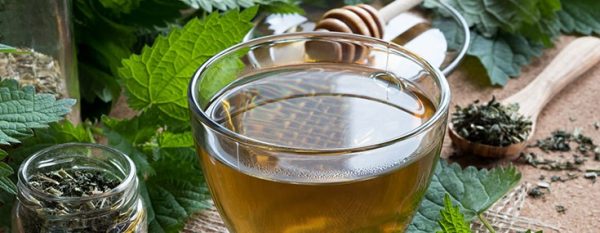The Benefits of Using Medicinal Herbs
In herbal medicine, plants’ leaves, flowers, barks, roots, and stems are harnessed and used for their medicinal properties. It is a practice that has been around for thousands of years before the development of science and the manufacture of contemporary medicine. With increased interest in health awareness, as well as the negative consequences and the side effects of using modern medicine, a good number of people are slowing beginning to turn to herbal medicine in an attempt to find a solution to a myriad of health challenges they may be facing. Another factor that has contributed to the increased attention that herbal medicine is currently facing is the rising costs of prescription medicine since the herbal options are far more affordable than the conventional ones.
The active ingredients in herbal medicine
In conventional medicine, the active ingredients are usually extracted from the source and served in isolation or blended with other ingredients with less potency as the main ingredient. However, in herbal medicine, there is no extraction of the active ingredient, and in most cases, you will find more than one active ingredient in the same herb. If you have resorted to using herbal medicine for combating the various health conditions you may be facing, it is imperative not to just dive in blindly, but to consult an established herbalist or naturopath for the right options to consider.
Benefits of medicinal herbs
There are certain instances when using herbal medicines may be more ideal than using medical drugs. Here are some of the reasons or justifications most people have for going for herbal medicines instead of the prescriptions drugs-:
They are affordable –
prescription drugs are increasingly becoming more expensive and are now beyond the reach of very many people. This has forced people to search for alternatives medication and herbal medicine has generously opened its doors to these people. Besides, the growing evidence of the efficacy of the medicinal herbs has also brought a lot of confidence in their use, since more and more people are beginning to believe that they will get a reprieve when they use these medicines.
Fewer side effects – in as much as the side effect of any herbal medicine will be dependent on the nature of the herb in question, they are fewer than those you would normally find in conventional medicine. If anything, the herbal medicine is from plants which we mostly eat as foods in our day to day encounters.
Flexibility on how to use them – with medicinal herbs, you have a range of choice of how you can use them. You are free to mix them with food, drinks, or take them in their raw forms. You can also take them as supplements like fulvic acid supplements known to combat a myriad of conditions, including different kinds of cancer.
They can be used for more than one condition –
With conventional medicine, one drug is prescribed for a specific condition. But this is never the case with medicinal herbs. For example, fulvic mushrooms can be used to treat a myriad of conditions, including circulatory disorders, inflammation and also for enhancing memory and fighting free radicals to keep the skin safe and healthy.
Where medicinal herbs are mostly used
The application of medicinal herbs is wide and varied, though there are certain conditions which suit the use of herbal medicine more than the conventional medicine. Some of the most common places where you will find the robust application of medicinal herbs include-:
Cardiovascular health –
There are very many herbal remedies for various cardiovascular health conditions. Herbs such as garlic, ginger, and dandelion are known to have very many health benefits, with the most notable ones being the ability to reduce the cholesterol levels and lower the blood pressure, thus reducing the instances of heart diseases.
Digestive health – digestive health is another area where there is an immense use of medicinal herbs. This is a practice that has been around for thousands of years, and recent research and scientific evidence has given credence to the use of certain herbs for combating certain digestive disorders. Digestive problems such as diarrhea, constipation, and ulcers can be treated with medicinal herbs containing herbs such as rosemary, red pepper, ginger, clove, and caraway amongst others.
Respiratory problems – herbal medicines containing plants such as thyme, eucalyptus, and dandelion have been used for thousands of years as remedies for respiratory conditions such as bronchitis, asthma and persistent coughs amongst others.
Skin problems – there are various herbs which can be made into salves and creams and be used as remedies for a myriad of skin conditions including burns, acne, psoriasis, and rashes amongst others. Some of the herbs favored as remedies for skin conditions include aloe, turmeric, mint, and basil.
Cancer –Science has proven that there are certain medicinal herbs with the ability to completely kill cancerous cells or slow down the spread of those cells. There are currently a lot of studies looking at various herbs and their effects on cancer cells and some are being used in the formulation of various cancer drugs. Garlic and dandelion, for example, are known to help prevent cancer in human beings. Anise and fennel, on the other hand, have been found to be very effective in fighting the spread of prostate cancer.
Side effects of medicinal herbs
Though medicinal herbs are good for the overall body because they can be used to combat many health conditions, some have side effects which ought to be taken into account when considering them as an option. Some of the side effects may include allergic reactions just as one may react to certain plants in the natural.
Again, most of the herbal medicines are not regulated by authoritative bodies such as the FDA. In most cases, the drugs are considered as dietary supplements and as such, they can be sold without being tested to ascertain their efficacy in combating the conditions or diseases they are claimed to cure. They may, therefore, be harmful especially in instances when they are taken without the direction of a qualified herbalist or naturopath.








